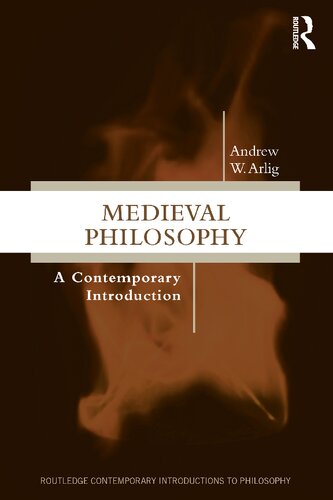

Most ebook files are in PDF format, so you can easily read them using various software such as Foxit Reader or directly on the Google Chrome browser.
Some ebook files are released by publishers in other formats such as .awz, .mobi, .epub, .fb2, etc. You may need to install specific software to read these formats on mobile/PC, such as Calibre.
Please read the tutorial at this link: https://ebookbell.com/faq
We offer FREE conversion to the popular formats you request; however, this may take some time. Therefore, right after payment, please email us, and we will try to provide the service as quickly as possible.
For some exceptional file formats or broken links (if any), please refrain from opening any disputes. Instead, email us first, and we will try to assist within a maximum of 6 hours.
EbookBell Team

4.0
16 reviewsThis book presents a new, contemporary introduction to medieval philosophy as it was practiced in all its variety in Western Europe and the Near East. It assumes only a minimal familiarity with philosophy, the sort that an undergraduate introduction to philosophy might provide, and it is arranged topically around questions and themes that will appeal to a contemporary audience.
In addition to some of the perennial questions posed by philosophers, such as "Can we know anything, and if so, what?", "What is the fundamental nature of reality?", and "What does human flourishing consist in?", this volume looks at what medieval thinkers had to say, for instance, about our obligations towards animals and the environment, freedom of speech, and how best to organize ourselves politically. The book examines certain aspects of the thought of several well-known medieval figures, but it also introduces students to many important, yet underappreciated figures and traditions. It includes guidance for how to read medieval texts, provokes reflection through a series of study questions at the end of each chapter, and gives pointers for where interested readers can continue their exploration of medieval philosophy and medieval thought more generally.
Key Features